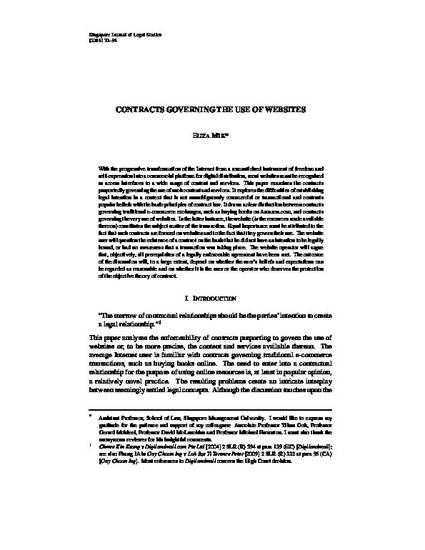
With the progressive transformation of the Internet from a romanticised instrument of freedom and self-expression into a commercial platform for digital distribution, most websites must be recognised as access interfaces to a wide range of content and services. This paper examines the contracts purportedly governing the use of such content and services. It explores the difficulties of establishing legal intention in a context that is not unambiguously commercial or transactional and contrasts popular beliefs with the basic principles of contract law. It draws a clear distinction between contracts governing traditional e-commerce exchanges, such as buying books on Amazon.com, and contracts governing the very use of websites. In the latter instance, the website (ie the resources made available thereon) constitutes the subject matter of the transaction. Equal importance must be attributed to the fact that such contracts are formed on websites and to the fact that they govern their use. The website user will question the existence of a contract on the basis that he did not have an intention to be legally bound, or had no awareness that a transaction was taking place. The website operator will argue that, objectively, all prerequisites of a legally enforceable agreement have been met. The outcome of the discussion will, to a large extent, depend on whether the user’s beliefs and expectations can be regarded as reasonable and on whether it is the user or the operator who deserves the protection of the objective theory of contract.
Available at: http://works.bepress.com/elizamik/26/
